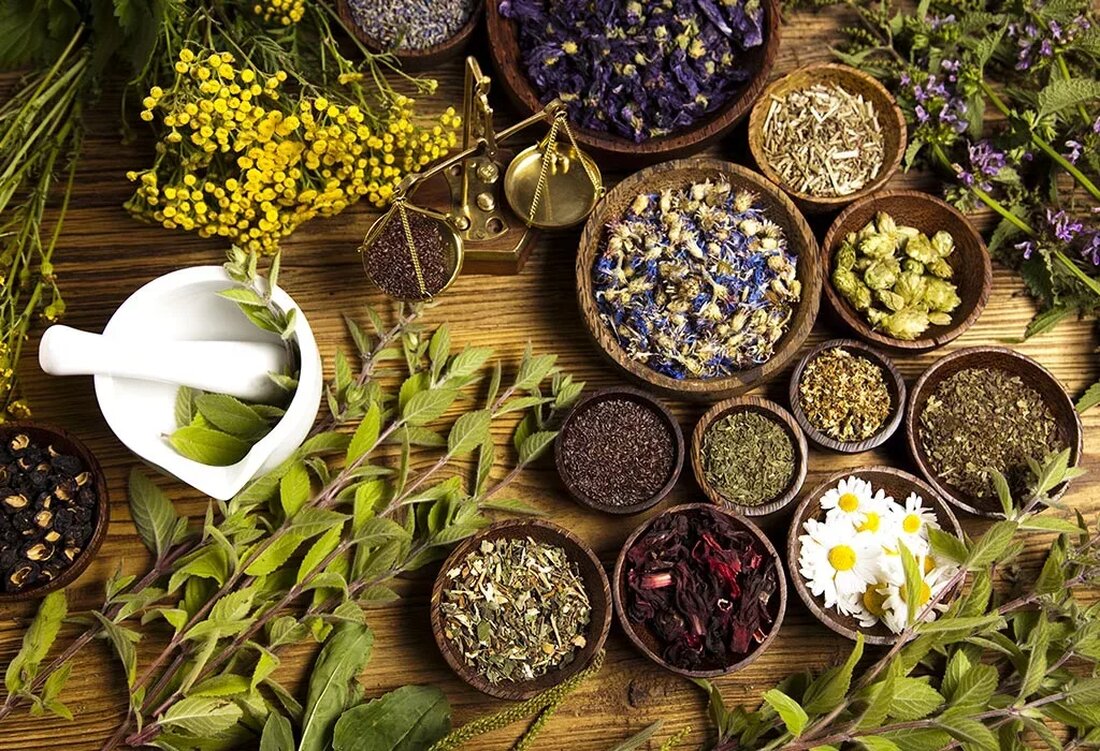Herbs for bad breath - The top 7 herbs
Herbs for bad breath? Whether caused by a mildly uncontrolled infection or the result of a serious illness, you may not want to live with bad breath. The good news is – you don’t have to. The following seven herbs are proven to go beyond trying to hide bad breath and actually get rid of it. When used especially together, these herbs clean your mouth and freshen your breath better than any mouthwash. Peppermint Tea Tree Sage Myrrh Clove Pine Needle Eucalyptus 7 Herbs for Bad Breath 1. Peppermint A vast majority of toothpastes contain peppermint flavoring, and this is no coincidence. Peppermint has the ability to give the mouth a fresh, clean...

Herbs for bad breath - The top 7 herbs
Herbs for bad breath? Whether caused by a mildly uncontrolled infection or the result of a serious illness, you may not want to live with bad breath. The good news is – you don’t have to. The following seven herbs are proven to go beyond trying to hide bad breath and actually get rid of it. When used especially together, these herbs clean your mouth and freshen your breath better than any mouthwash.
- Pfefferminze
- Tee Baum
- Salbei
- Myrrhe
- Nelke
- Kiefernnadel
- Eukalyptus
7 herbs for bad breath
1. Peppermint
A vast majority of toothpastes contain peppermint flavoring, and this is no coincidence. Peppermint has the ability to leave the mouth feeling fresh, clean. Peppermint essential oils (real peppermint, not a flavoring) do much more than make you feel fresh. One study showed that peppermint oils actually help reduce bad breath more effectively than a lab-made chemical rinse. ((link removed))
Our recommendation: (link removed)
2. Tea tree
Tea tree oil has long been known among naturopaths for its toxicity to harmful organisms that cause bad breath. With these powerful properties, researchers have studied the effectiveness of tea tree oil extract in mouthwashes. One such study found that tea tree oil eliminated a broader range of microorganisms than the chemical chlorhexidine. Another study found that Solobacterium moorei, a bacterium associated with bad breath, is highly susceptible to the effects of tea tree oil. Contained in a rinse, it offers a complete cleansing effect in the fight against bad breath. Tea tree oil has also been found to successfully fight candida, which can cause bad breath. ((Link removed), (Link removed), (Link removed))
Our recommendation: (link removed)
3. Sage
Sage has been known as a medicinal herb since ancient times. Modern research has only confirmed its effectiveness against harmful organisms and its powerful abilities to combat bad breath. Sage has been shown to be effective against organisms that cause bad breath, such as Candida albicans, Streptococcus mutans and Porphyromonas gingivalis. ((link removed))
See also: (link removed)
4. Myrrh
Myrrh has been used in a variety of ways for thousands of years. For those looking to combat bad breath - regardless of the cause - myrrh is an effective natural remedy as it cleanses the mouth of germs and also treats conditions that can promote future growth. ((link removed), source 2)
5. Clove
In Chinese medicine, bad breath is seen as a result of Qi stagnation. According to the Chinese, clove promotes the flow of Qi and the clove has a long history of treating bad breath in Chinese medicine. Modern studies have shown that cloves are an effective ingredient in mouthwashes. In one study, participants preferred a chemical-based mouthwash in terms of taste, aftertaste, and ease of use. The authors of this study also found that mouthwashes containing herbs such as cloves were viable alternatives even for people who could not use chemical rinses. ((link removed))
It shouldn't surprise anyone that a natural product swirled around in your mouth tastes and feels better than something lab-grown.
6. Pine needle
Pine resins and oils have been used for a variety of medical therapies in the past. Pine naturally contains terpene alcohols, which are powerful detergents and toxic to harmful organisms. Researchers have also found that pine oils offer powerful antioxidant properties. As part of a mouthwash, the pine needle supports general oral health! ((link removed))
Our recommendation: (link removed)
7. Eucalyptus
Eucalyptus has shown remarkable effectiveness in reducing bad breath. A 2010 study found that eucalyptus eliminated bad breath by significantly reducing volatile sulfur compounds (which make your breath miserable). The success of eucalyptus in this study demonstrated that its cleansing effects were effective both in the laboratory and in the field. ((link removed))
Our recommendation: (link removed)
Relieve bad breath with herbal remedies
These herbal remedies have been used medicinally for centuries! Recent research has only proven what natural healers have known for ages... these natural remedies work! Essential oils are available to everyone and can be made into a mouthwash or added to your toothbrush. Peppermint and sage leaves can also be chewed. Either way, remember to look for organic herbs.

 Suche
Suche
 Mein Konto
Mein Konto
